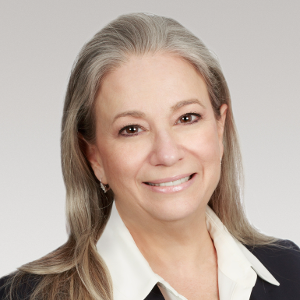In the last six months, COVID-19 has upended our daily lives and fundamentally changed the way we work, interact and coexist. For many individuals and families, the pandemic not only torpedoed summer vacation plans and dashed hopes for a “normal” school year, it also forced many of us to confront somber topics such as illness, death and incapacitation in ways that we may not have before. This is especially true for parents of children with special needs or permanent cognitive disabilities.
While these subjects can feel overwhelming—particularly now, when our collective anxiety is peaking—a constructive way to manage these feelings of unease and uncertainty is with proper planning and preparation. For those faced with these personal challenges or advising parents of children with disabilities who are concerned about the child’s ability to handle important decisions about their own physical, economic and/or social well-being in the future, the time to plan and act is sooner rather than later. Parents of special needs and developmentally disabled children should educate themselves about legal guardianship and explore their options with an attorney well before the child’s eighteenth birthday.
Currently, in New York State, legal guardianship over an adult or soon to-be-adult can be obtained through one of two ways: Article 17-A of the Surrogate’s Court Procedure Act (“Article 17-A”) and Article 81 of the Mental Hygiene Law (Article 81). While the two statutes were enacted by the Legislature at different times to address and respond to different concerns, both have been used to pursue legal guardianship over an incapacitated or cognitively-impaired individual. Determining which proceeding is most appropriate for a particular individual depends on a number of factors, including the age of the child or person, the cause of the cognitive impairment and/or developmental disability, the severity of the condition and when it first developed or emerged.
Article 17-A, the older of the two statutes, was first promulgated by the New York Legislature in 1969 to give families or interested persons the ability to directly seek redress from the courts in order to maintain legal control over children diagnosed with “mental retardation” as they approached the age of majority. The statute has been revamped at least three times since it was first enacted, the most recent amendment occurring in 2016, when the Legislature finally substituted “intellectual disability” for the outdated (and decidedly pejorative) term “mental retardation.”
The amendments to Article 17-A modernized the statute to reflect society’s growing awareness of developmental and intellectual disabilities as well as the medical community’s greater understanding of an expanded array of conditions that were previously excluded by the original statute. Conditions that are presently considered “developmental disabilities” under Article 17-A include autism, cerebral palsy, epilepsy and dyslexia. The text of Article 17-A also specifically includes disabilities caused by traumatic brain injuries and extends to neurological impairments and intellectual disabilities that are “closely related” to conditions named in the statute, but are now understood to be distinct and separate qualifying conditions. See SCPA §1750-A (1) (a)-(d).
Through an Article 17-A guardianship proceeding, a guardian appointed by the Surrogate’s Court is given extensive authority to make decisions concerning a developmentally-disabled individual’s health care and finances, among other things. Some commentators have criticized the plenary nature of Article 17-A guardianships as too restrictive; however, in recent years, some New York courts have demonstrated a willingness to tailor 17-A guardianships to suit the unique needs of the individual. See, e.g., In re Robert C.B., 125 N.Y.S.3d 253 (Sur. Ct., Dutchess Cnty. 2020) (stating that the Surrogate has the implied authority and inherent discretion to tailor an Article 17-A guardianship in a manner that meets the specific needs and serves the best interest of an intellectually or developmentally disabled person); In re Capurso, 63 Misc. 3d 725 (Sur. Ct., Westchester Cnty. 2019) (dissolving 17-A guardianship when, upon later review, court determined that a less restrictive alternative was available).
The burden is on the petitioner seeking the guardianship to establish the need for the guardianship and that a guardian is in the individual’s best interests. The petitioner must also provide sworn statements from at least two physicians (and/or one physician and one psychologist) confirming that the subject individual is permanently or indefinitely incapable of managing their own affairs due to a developmental disability that manifested itself before the individual was 22 years of age. If the disability was caused by brain trauma or injury, however, the age at which the disability occurred or appeared is irrelevant.
Article 81 of the Mental Hygiene Law emerged more than two decades after Article 17-A. Enacted in 1992, Article 81 created a separate procedure by which the Parents of special needs and developmentally-disabled children should educate themselves about legal guardianship and explore their options with an attorney well before the child’s eighteenth birthday. Supreme Court of the State of New York could appoint a guardian for an individual who either agreed to the appointment or was found to be incapacitated. Besides the difference in venue (Surrogate’s Court versus Supreme Court), one of the key features that distinguishes an Article 17-A proceeding from an Article 81 proceeding is the fact that an Article 81 guardianship does not require a medical diagnosis of a mental disability or cognitive impairment.
Instead, under Article 81, the court must simply determine that the subject of the petition is unable to care for themselves and/or their property and “cannot appreciate the potentially harmful consequences of their functional inability to care for themselves and their property.” MHL §81.02. Article 81’s liberal language enables courts to create more tailored, nuanced guardianships to address the specific needs of the individual and permit the individual to maintain as much self-determination and independence as possible, taking into account, of course, the nature and extent of their disability.
Accordingly, the issuing court’s authority to periodically review and modify Article 81 guardianships is built into the statute. Historically, the summary nature of Article 17-A did not lend itself to similar modifications and/or limitations. However, more recent case law recognizes that Article 17-A does not exclude modifications or limitations where shown to be in the individual’s best interests. See In Robert C.B., supra.
It is also worth noting that the age of the subject individual is not a consideration whatsoever under Article 81. Therefore, while Article 81 is most commonly used by petitioners seeking guardianship over older individuals and those who become incapacitated or disabled later in life, it can (and has been) used by parents of adult or soon-to be-adult children in circumstances where Article 17-A is unsuitable or inappropriate.
Much has been written on the pros and cons of Article 17-A versus Article 81, and the debate among legal scholars and practitioners continues to this day. Ultimately, the decision about which type of proceeding to pursue is case-specific and will depend on a myriad of factors, including (among other things) the age of the individual, the nature of their disability and whether or not their condition is permanent. Guidance offered by the New York State Unified Court System’s website encourages the use of Article 17-A proceedings for minor children approaching the age of 18. See http://nycourts. gov/courthelp//guardianship/17a. shtml. Article 17-A can also be used to obtain guardianship over young adults up to the age of 22 in certain circumstances. See SCPA 1750- A(1)(d). If, however, the subject of the guardianship is an adult who develops a cognitive impairment or disability later in life, Article 81 is likely a better fit.
Timing is also a consideration that comes into play. For example, Article 17-A proceedings are summary proceedings, while Article 81 proceedings are not. As most litigators know, the fact that a proceeding is “summary” in nature does not necessarily guarantee an expedited result—particularly in the era of COVID-19. However, it is important to be aware that Article 81 proceedings have the potential to be longer and costlier than Article 17-A proceedings.
Setting aside the commentary on the virtues and vices of Article 17-A and Article 81, one thing is indisputable: early planning is key. It is vitally important to advise loved ones or persons who may be seeking counsel with developmentally-disabled children on the brink of adulthood to understand the nuances of guardianship proceedings in New York State, discuss their particular circumstances with an attorney, and set the wheels in motion to timely address these concerns.
-
Reprinted with permission from the September 14, 2020 edition of the NEW YORK LAW JOURNAL © 2020 ALM Media Properties, LLC. All rights reserved.



















